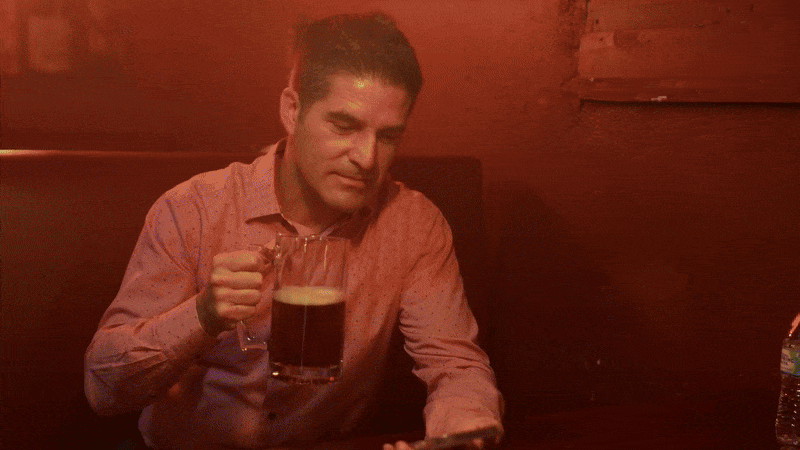The 'Narcissist' is Rubber and You are Glue
Historically, labels like 'narcissist' have been used to diminish and dehumanize others, often in service of broader social or political objectives. Before the advent of modern psychological sciences, behaviors deemed abnormal or socially disruptive were met with hostility, exclusion, or worse. The very concept of mental illness was once limited to simplistic and often cruel diagnoses, such as "lunacy" or "hysteria," terms that reflected a deep misunderstanding of human psychology.

The Label of 'Narcissist': A Mirror Reflecting the Narrator
In a world where all things are relative, it’s striking to recognize that the Western approach to mental health analysis offers no escape from its own subjectivity. This awareness, if properly applied, has the potential to mend rifts within families, states, and even nations. The term "narcissist," often hurled as an accusation, reveals more about the accuser than the accused. When we seize opportunities to dismiss the full complexity of another person, we tread dangerously close to indifference, which can pave the way for hatred, destruction, and ultimately, conflict.
The Historical Context of Labels
Historically, labels like 'narcissist' have been used to diminish and dehumanize others, often in service of broader social or political objectives. Before the advent of modern psychological sciences, behaviors deemed abnormal or socially disruptive were met with hostility, exclusion, or worse. The very concept of mental illness was once limited to simplistic and often cruel diagnoses, such as "lunacy" or "hysteria," terms that reflected a deep misunderstanding of human psychology.
This tendency to pathologize those who deviate from social norms has roots in power dynamics. When we label someone a 'narcissist,' we often do so not to help or understand them, but to invalidate their perspective, to dismiss their emotions, and to assert our own moral or intellectual superiority. This is a form of psychological warfare, a tactic used historically to justify the marginalization of others.
Respect as a Tool for Peace
Respect is not a personality trait; it is a tool for peace. When we say people are respectful, it means that they are war-avoidant. Respect is like driving on the right side of the road—it is a societal norm that, when adhered to, ensures smooth and safe interactions. However, just as even the most cautious driver may occasionally veer off course due to unforeseen circumstances, individuals may temporarily deviate from respectful behavior when motivated by fear, anger, or misunderstanding.
This deviation does not make them inherently disrespectful or narcissistic. Instead, it highlights the complexity of human behavior and the importance of understanding context. When we fail to consider the full range of factors influencing someone's actions, we risk reducing them to a single, damaging label.
The Dangers of Diagnostic Oversimplification
As our understanding of mental health has evolved, so too has the list of diagnoses. However, with increased knowledge comes the danger of oversimplification and misuse of these diagnoses. The label of 'narcissist' is often used in a way that ignores the nuances of personality and behavior. It reduces a person to a caricature, stripping them of their humanity and complexity.
This is not to say that narcissistic traits do not exist or that they cannot be harmful. However, when we use the term as a weapon, we contribute to a culture of blame and division. We ignore the fact that everyone exhibits narcissistic traits to some degree, particularly in a culture that often rewards self-promotion and individualism.
From Diagnosis to Understanding
The key to avoiding the pitfalls of labels like 'narcissist' lies in shifting our focus from diagnosis to understanding. Rather than using labels to categorize and dismiss others, we should seek to understand the underlying motivations and experiences that drive their behavior. This approach requires empathy, patience, and a willingness to engage with others on a deeper level.
By doing so, we move away from a mindset that views others as adversaries or obstacles and towards a more compassionate and cooperative approach to relationships. This shift is essential for fostering peace, both in our personal lives and in the broader context of society.
The term 'narcissist' reveals more about the narrator than the person being described. It reflects a willingness to reduce others to simplistic labels rather than engage with the full complexity of their humanity. This reductionism is dangerous, as it paves the way for indifference, hatred, and conflict.
Respect, on the other hand, requires us to see others as complex individuals deserving of understanding and empathy. By embracing respect and rejecting the oversimplification of others, we can build a more peaceful and just world—one that avoids the historical pitfalls of dehumanization and division.
What's Your Reaction?






























_at_Hillsboro_Road_(Virginia_State_Route_690)_in_Hillsboro%2C_Loudoun_County%2C_Virginia.jpg/240px-thumbnail.jpg)












![Round One of 'Did You Know He Was...Whoite [sic]'](https://news.awc.ac/uploads/images/202409/image_430x256_66eb6319e5d76.jpg)















